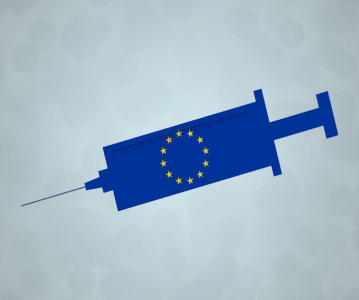BMS Presents Data from Multiple New Studies at IDWeek 2014 Showcasing Continued Innovation in Virology

Bristol-Myers Squibb Company (BMS) has announced that ten abstracts have been accepted for presentation at IDWeek 2014, which is taking place in Philadelphia, PA, 8–12 October 2014. The breadth of data being presented highlights BMS’s commitment to discover, develop and deliver innovative medicines that help patients prevail over chronic viral diseases.
Highlights include
• A 24 week sub-group analysis investigating the HIV-1 attachment inhibitor prodrug BMS-663068 in treatment-experienced patients infected with HIV-1, as well as a 24 week safety profile analysis in this group. BMS-663068 is an investigational prodrug of an attachment inhibitor with a unique mechanism of action that prevents initial viral attachment to the host CD4+ T cell and entry into the host immune cell.
• A series of data presentations investigating the use of daclatasvir in multiple treatment regimens with other antiviral medicines and among varied patient groups and HCV genotypes. Daclatasvir is an investigational NS5A replication complex inhibitor that has shown high antiviral potency and pan-genotypic activity across HCV genotypes (in vitro).
“The compelling body of data presented at this year’s IDWeek underscore Bristol-Myers Squibb’s ongoing commitment to pioneering scientific innovation that investigates the significant unmet medical needs of those living with chronic viral diseases including HIV and HCV,” said Douglas Manion, M.D., Head of Specialty Development, Bristol-Myers Squibb. “We aim to bring to market treatment options that will improve health outcomes for a diverse range of HIV and HCV patients, including treatment-experienced HIV patients in search of new options, and HCV patients with difficult-to-treat disease.”
Related News
-
News Patients vs Pharma – who will the Inflation Reduction Act affect the most?
The Inflation Reduction Act brought in by the Biden administration in 2022 aims to give better and more equitable access to healthcare in the USA. However, pharma companies are now concerned about the other potential costs of such legislation. -
News CPHI Podcast Series: What does the changing US Pharma market mean for industry and patients alike?
In this week's episode of the CPHI Podcast Series Lucy Chard, Digital Editor for CPHI Online is joined by James Manser to discuss the political and market changes in the US pharma field. -
News CPHI Barcelona Annual Report illuminates industry trends for 2024
The CPHI Annual Survey comes into it’s 7th year to report on the predicted trends for 2024. Over 250 pharma executives were asked 35 questions, with their answers informing the industry landscape for the next year, spanning all major pharma marke... -
News Which 10 drugs are open to price negotiation with Medicare in the USA?
The Centres for Medicare & Medicaid Services, under the Biden administration in the USA, has released a list of the 10 drugs that will be open to price negotiations as part of the new legislation under the Inflation Reduction Act (IRA). -
News EU Medical Devices Regulation causes unintended disappearances of medical devices for children, doctors state
Doctor groups and associations have appealed to the EU to correct the EU Medical Devices Regulation law that may cause unintended shortages of essential drug and medical devices for children and rare disease patients. -
News 10 Major Drug Approvals So Far in 2023
Last year, 37 novel drugs were approved by the FDA, this was a high number for such a category, and covered many fields including oncology, demonstrating how promising further research is, and how it is only continuing to build. To date, there are alre... -
News Detecting Alzheimer's disease with a simple lateral flow test
A novel rapid diagnostic test for early-stage Alzheimer's disease has been developed using a biomarker binder from Aptamer Group along with technology from Neuro-Bio, the neurodegenerative disease experts. -
News CPHI Podcast Series: outsourcing and manufacturing trends
Listen to the CPHI Podcast Series this June to hear Gil Roth of the PBOA speak with Digital Editor Lucy Chard about the biggest trends and topics to watch in pharma outsourcing and manufacturing at the minute.
Position your company at the heart of the global Pharma industry with a CPHI Online membership
-
Your products and solutions visible to thousands of visitors within the largest Pharma marketplace
-
Generate high-quality, engaged leads for your business, all year round
-
Promote your business as the industry’s thought-leader by hosting your reports, brochures and videos within your profile
-
Your company’s profile boosted at all participating CPHI events
-
An easy-to-use platform with a detailed dashboard showing your leads and performance







